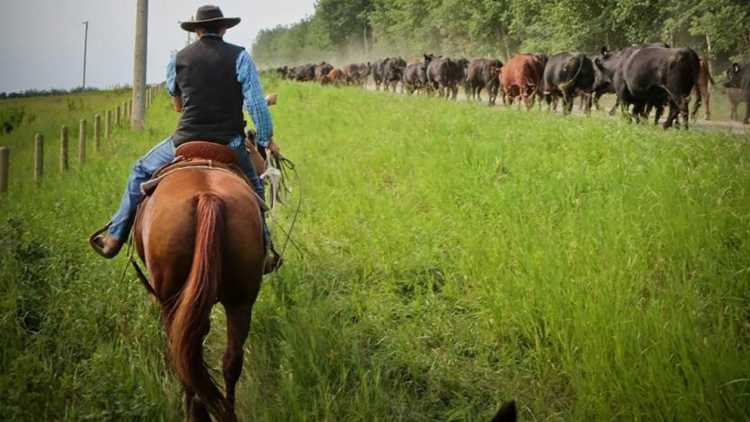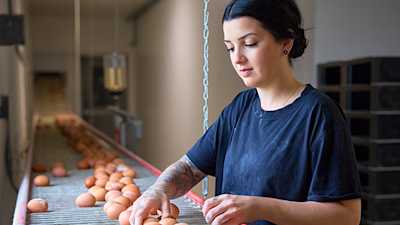Benchmarking on the ranch: How one farmer assesses value

In Black Diamond, Alta., approximately an hour south of Calgary and in the Rocky Mountain foothills, new farmers Ben and Stephanie Campbell are trying new ways to make money at their Grazed Right Ranch.
In a recent episode of the FCC Knowledge podcast: Talking Farm and Food, host Marty Seymour talks with Ben about, among other things, how he benchmarks on the farm and gets the most value out of their land.
Ben gave up a career in engineering, deciding instead to put his critical thinking skills to work in agriculture and operating the ranch.
Benchmarking – earning enough to pay others
My goal is to make everything else pay for my mortgage, and then my agricultural income can support my agricultural business and growth.
Because the Campbells are new to the industry and their ranch operation is diverse, Ben is more willing to try new things – and benchmarking is one of them.
His approach is straightforward: If he’s getting paid less than someone else doing the same job, then that job is a failure.
For example, if he pays himself $35 an hour for looking after cattle and wants to hire that task out, but someone else won’t do that job for that pay, then he might need to reconsider stepping away. On the other hand, if someone will do the same job for $20 an hour, he can keep the difference and spend time working on another part of the farm or spending time with family.
To put it simply, what would he pay someone else to do the same job and is it worth it?
The dollar per hour formula also helps him determine whether he’s making money on the farm. He uses the example of taking a year off to spend with his family: Could each task on the farm be completed by paying someone else to do it and still be profitable? If the answer is no, then it’s time to reassess and look at dropping that portion of the farm operation for something more profitable.
Diversity is high value
The Campbells are deliberate with using their farmyard and land to get as much value as they can out of it.
Ben explains that, like many farms, he has several buildings in his yard. He turned one into self-storage, while one is used for shop space and is rented to a local mechanic. He also rents out storage space for recreational vehicles and a loft in one of his barns.
Ben sees diversity as being high value. His goal is to make everything else pay for their mortgage, and then use the ranch income to support agricultural business and growth.
To learn more about how an engineering degree can help you raise grass-fed beef, listen to the full episode.

Accelerators and incubators provide the support start-ups and entrepreneurs need to develop, validate and bring new products to market – and can have a positive impact at the farm level.
